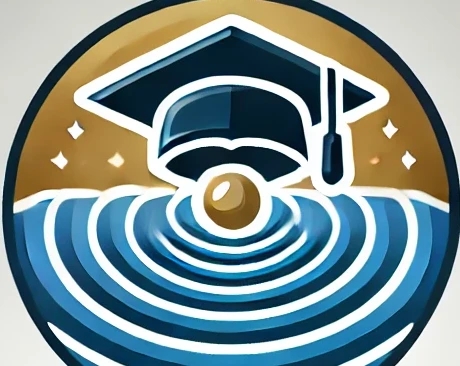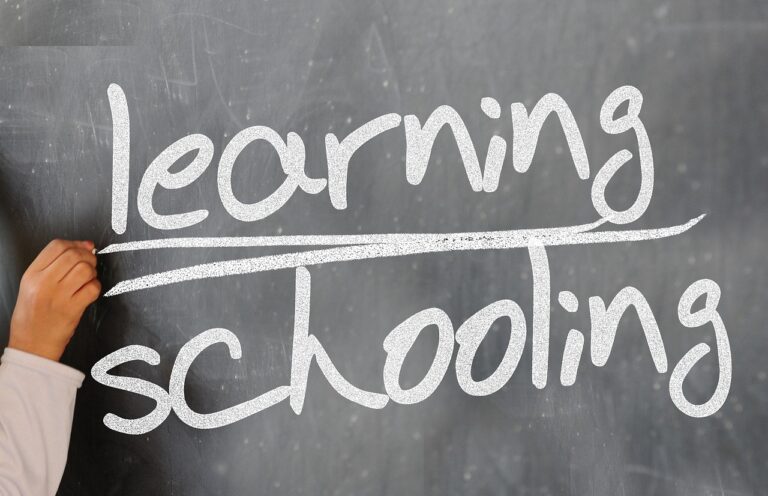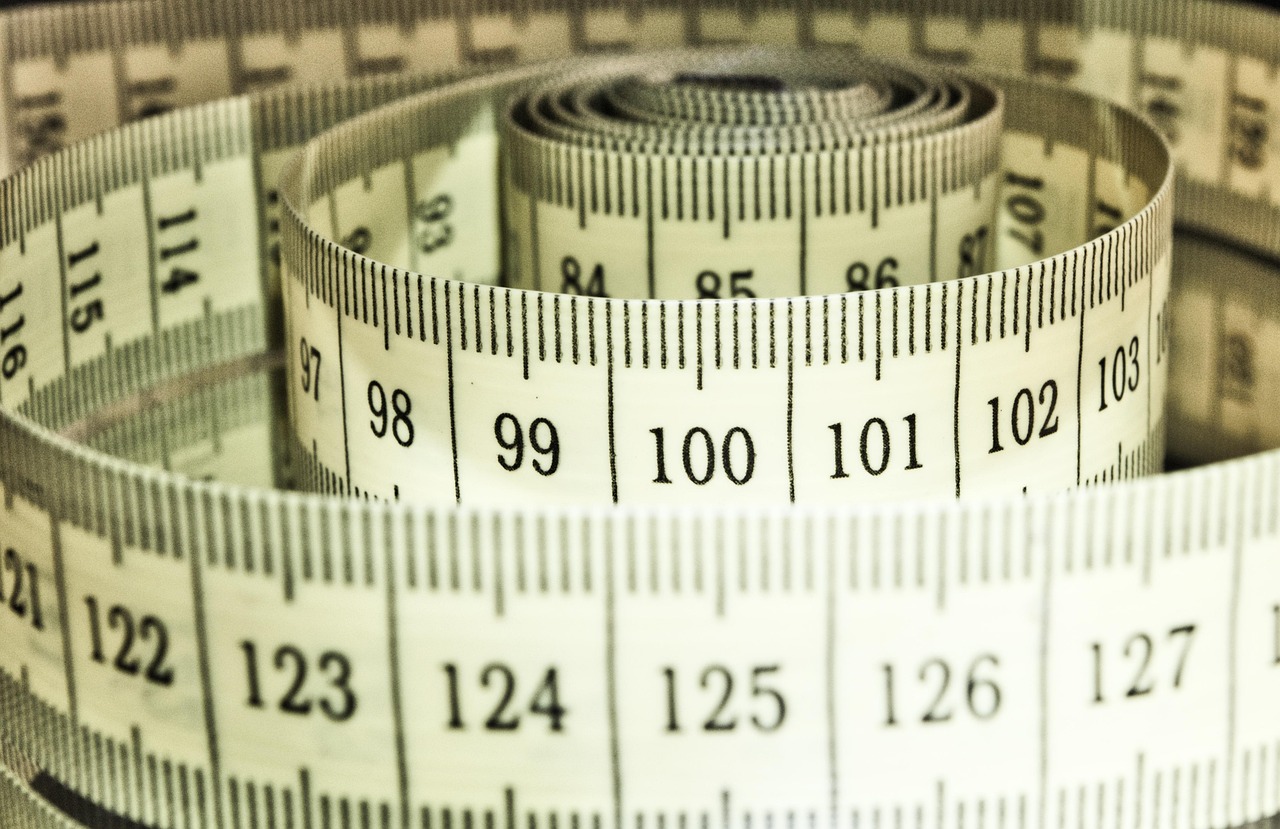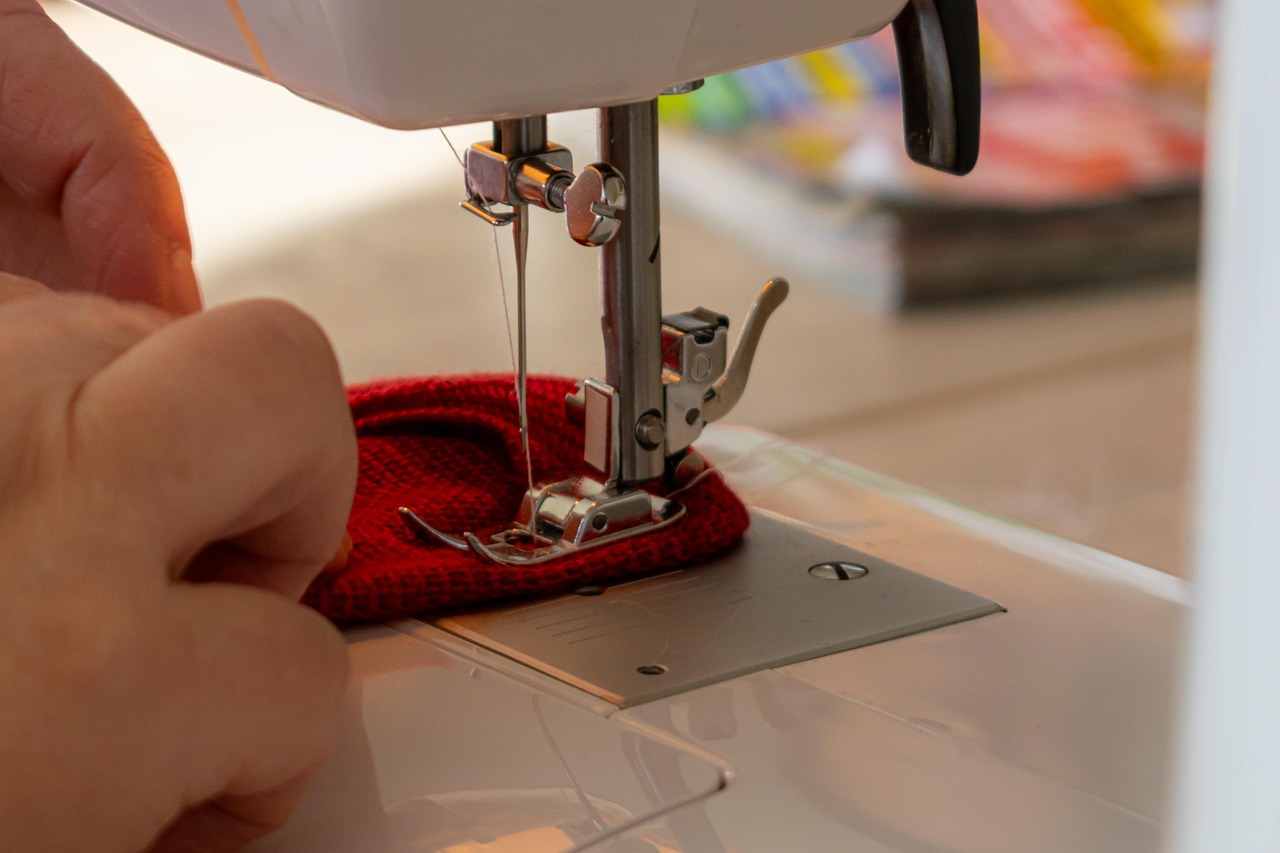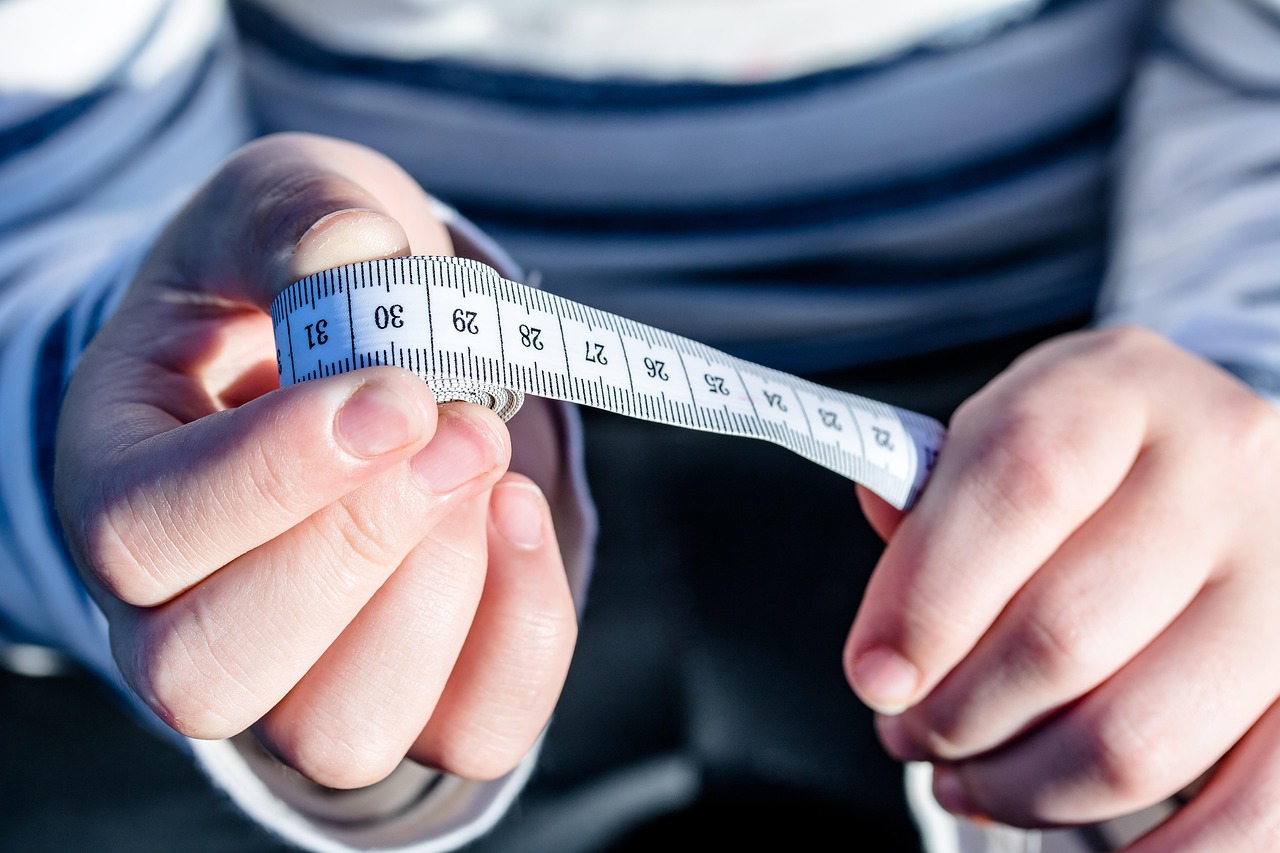weekly Scheme Of Work Primary 1
Lagos State Unified Scheme of Work for Primary 1 English Studies – Third Term (2024/2025 Academic Session)
Week-by-Week Breakdown
Week 1: Phonics – Production of Basic Sounds
Learning Objectives:
Produce and identify basic sounds correctly.
Differentiate between letters and sounds.
Use letters at the beginning, middle, and end of words.
Activities:
Listen to pronunciation of sounds.
Differentiate between production of sounds and letters.
Use sounds in words (onset, coda, etc.).
Resources: Flashcards, alphabet charts, sound recordings.
Week 2: Structure – Asking About the Number of Objects
Learning Objectives:
List some objects.
Ask about the number of objects using the correct question form.
Answer questions about the number of objects correctly.
Activities:
Role-play asking and answering questions about object quantities.
Use real objects for counting exercises.
Resources: Real objects, picture books, counting blocks.
Week 3: Structure – Animal Sounds
Learning Objectives:
Identify and name sounds made by various animals.
Reproduce animal sounds.
Differentiate between animal sounds and human speech.
Construct sentences with animal sounds (e.g., “The dog barks.”).
Activities:
Identify and mimic animal sounds.
Differentiate human speech from animal sounds.
Use animal sounds in sentences.
Resources: Audio clips, animal picture cards.
Week 4: Writing – Guided Composition: My Father
Learning Objectives:
Complete a guided composition on “My Father.”
Describe their fathers in five simple sentences.
Compare their write-ups.
Activities:
Orally describe their fathers.
Write five sentences about their fathers.
Read and compare writings in groups.
Resources: Writing materials, sample compositions.
Week 5: Supplementary Reading
Learning Objectives:
Share stories read with peers.
Discuss lessons learned from the book.
Relate events in the story to personal experiences.
Activities:
Read recommended storybooks.
Discuss and relate themes to real-life situations.
Resources: Lagos State approved literature texts.
Week 6: Phonics – Pronunciation Practice (e.g., “the,” “thank,” “tank”)
Learning Objectives:
Pronounce /θ/ and /t/ sounds correctly.
Differentiate between /θ/ and /t/.
Give examples of words with these sounds.
Activities:
Listen and repeat pronunciation of /θ/ and /t/.
Differentiate between words with /θ/ and /t/.
Provide examples of words with these sounds.
Resources: Flashcards, pronunciation charts.
Week 7: Writing – Word Formation
Learning Objectives:
Form new words using given sounds.
Use the words in sentences.
Create stories with the new words.
Activities:
Blend given sounds to form words.
Use formed words in sentences.
Develop short stories using the new words.
Resources: Flashcards, picture books, dictionaries.
Week 8: Mid-Term Test / Break
Week 9: Phonics – Pronunciation Practice (e.g., Months)
Learning Objectives:
Pronounce names of the months correctly.
Identify each month of the year.
Form a song on the months.
Activities:
Identify and pronounce each month.
Sing songs about the months in groups.
Resources: Charts with months, audio recordings.
Week 10: Reading – Label Reading
Learning Objectives:
Read labels.
Explain their understanding of the labels.
Apply the information to real-life contexts.
Activities:
Identify labels on various objects.
Discuss the meaning of labels.
Relate label information to real-life situations.
Resources: Labeled objects, charts with labels.
Week 11: Structure – Singular and Plural
Learning Objectives:
Identify singular and plural forms of objects.
Provide examples of singular and plural forms.
Use singular and plural forms in sentences.
Activities:
Identify singular and plural forms using real objects.
Provide examples and use them in sentences.
Resources: Real objects, flashcards.
Week 12: Revision and Examination
Lagos State Unified Scheme of Work for Primary 1 Mathematics – Third Term (2024/2025 Academic Session)
Week-by-Week Breakdown
Week 1: Revision of Second Term’s Work
Learning Objectives:
Recall and reinforce previous term’s topics.
Count and write numbers from 51 to 100.
Activities:
Engage in exercises revisiting key concepts from the second term.
Practice counting and writing numbers within the specified range.
Resources: Number charts (51–100), flashcards.
Week 2: Length
Learning Objectives:
Understand the concept of length.
Measure objects using non-standard units (e.g., hand spans, strides).
Activities:
Measure classroom items using body parts.
Compare lengths of different objects.
Resources: Rulers, measuring tapes, everyday objects.
Week 3: Conversion of Centimeters to Meters and Vice Versa
Learning Objectives:
Convert measurements between centimeters and meters.
Apply conversions in practical contexts.
Activities:
Solve problems involving unit conversions.
Measure and record lengths in both units.
Resources: Measuring tapes, conversion charts.
Week 4: Capacity
Learning Objectives:
Understand the concept of capacity.
Measure liquids using standard units (liters, milliliters).
Activities:
Use containers to measure and compare volumes.
Discuss everyday examples of capacity.
Resources: Measuring jugs, various containers.
Week 5: Weight
Learning Objectives:
Understand the concept of weight.
Measure objects using standard units (grams, kilograms).
Activities:
Weigh classroom items using scales.
Compare weights of different objects.
Resources: Weighing scales, various objects.
Week 6: Time – Days and Weeks
Learning Objectives:
Identify days of the week.
Understand the concept of a week.
Activities:
Create a weekly calendar.
Discuss daily routines and schedules.
Resources: Calendars, charts.
Week 7: Two-Dimensional Shapes
Learning Objectives:
Identify and name basic 2D shapes (circle, square, triangle, rectangle).
Understand properties of these shapes.
Activities:
Shape sorting and matching games.
Drawing and coloring activities.
Resources: Shape cut-outs, drawing materials.
Week 8: Three-Dimensional Shapes
Learning Objectives:
Identify and name basic 3D shapes (cube, sphere, cylinder, cone).
Understand properties of these shapes.
Activities:
Handling and examining real-life 3D objects.
Building models using blocks.
Resources: Building blocks, everyday 3D objects.
Week 9: Comparison of Shapes Involving Length, Breadth, Area, and Perimeter
Learning Objectives:
Compare sizes and dimensions of various shapes.
Understand basic concepts of area and perimeter.
Activities:
Measure and compare dimensions of different shapes.
Calculate simple perimeters.
Resources: Rulers, measuring tapes, worksheets.
Week 10: Data Collection
Learning Objectives:
Collect and organize simple data.
Represent data using pictograms and bar charts.
Activities:
Conduct class surveys (e.g., favorite fruits).
Create visual representations of collected data.
Resources: Graph papers, markers, survey sheets.
Week 11: Revision
Activities:
Review all topics covered during the term.
Engage in practice exercises and quizzes.
Week 12: Examination
Activities:
Administer end-of-term assessments.
Provide feedback and discuss results.
Lagos State Unified Scheme of Work for Primary 1 Basic Science and Technology – Third Term (2024/2025 Academic Session)
Week-by-Week Breakdown
Week 1: Revision of Second Term’s Work
Learning Objectives:
Recall and reinforce key concepts from the second term.
Activities:
Engage in discussions and exercises revisiting previous topics.
Week 2: Meaning and Examples of Simple Machines
Learning Objectives:
Understand the concept of simple machines.
Identify examples of simple machines in daily life.
Activities:
Observe and discuss simple machines like levers and pulleys.
Week 3: Safe Use of Simple Machines
Learning Objectives:
Learn the importance of using simple machines safely at home and in school.
Activities:
Demonstrate proper handling and discuss potential dangers of misuse.
Week 4: Meaning and Benefits of Technology
Learning Objectives:
Define technology and understand its benefits.
Compare traditional methods with modern technological approaches.
Activities:
Discuss how tasks were performed before and after technological advancements.
Week 5: Electricity and Electrical Gadgets
Learning Objectives:
Understand the concept of electricity and its uses.
Identify common electrical gadgets and their functions.
Activities:
Explore various electrical appliances and discuss their importance.
Week 6: Technology in Transportation – Land and Air
Learning Objectives:
Identify different means of land and air transportation.
Understand the significance of transportation in daily life.
Activities:
Discuss various vehicles and aircraft, their uses, and benefits.
Week 7: Mid-Term Test and Break
Week 8: Technology in Transportation – Water
Learning Objectives:
Understand water transportation methods.
Discuss the advantages and disadvantages of water transportation.
Activities:
Explore different water vessels and their roles in transportation.
Week 9: Exploring Your Environment – Immediate Surroundings
Learning Objectives:
Identify and describe objects in the classroom, school, and home environments.
Activities:
Engage in observation and discussion about familiar surroundings.
Week 10: Exploring Your Environment – Roads
Learning Objectives:
Understand the types and functions of roads.
Activities:
Discuss different road types and their importance in transportation.
Week 11: Revision
Activities:
Review all topics covered during the term through discussions and exercises.
Week 12: Third Term Examination
Activities:
Assess understanding of the term’s topics through examinations.
Lagos State Unified Scheme of Work for Primary 1 Computer Studies – Third Term (2024/2025 Academic Session)
Week-by-Week Breakdown
Week 1: Revision of Second Term’s Work
Learning Objectives:
Recall and reinforce key concepts from the second term.
Activities:
Engage in discussions and exercises revisiting previous topics.
Week 2: Common ICT Devices – GSM Phone
Learning Objectives:
Identify GSM phones.
Understand the full meaning of GSM.
Name types of GSM phones.
State the uses of GSM phones.
Activities:
Observe and discuss different GSM phones.
Discuss the functions and importance of GSM phones.
Resources: Real GSM phones, pictures of various GSM phones.
Week 3: Common ICT Devices – Calculator
Learning Objectives:
Identify and describe calculators.
Name types of calculators.
State the uses of calculators.
Activities:
Explore different calculators and their functions.
Discuss the importance of calculators in daily life.
Resources: Various calculators, images of calculators.
Week 4: Common ICT Devices – Digital Wristwatch
Learning Objectives:
Identify and describe digital wristwatches.
Differentiate between digital and analogue wristwatches.
State the uses of wristwatches.
Activities:
Observe and compare digital and analogue wristwatches.
Discuss the functions of wristwatches.
Resources: Real wristwatches, pictures of wristwatches.
Week 5: Description of Digital Wristwatch
Learning Objectives:
Describe the features of a digital wristwatch.
Understand the functions of a digital wristwatch.
Activities:
Examine digital wristwatches and discuss their features.
Demonstrate how to use a digital wristwatch.
Resources: Digital wristwatches, instructional materials.
Week 6: Description of Calculator
Learning Objectives:
Describe the features of a calculator.
Understand the functions of a calculator.
Activities:
Examine calculators and discuss their features.
Demonstrate how to use a calculator.
Resources: Various calculators, instructional materials.
Week 7: Description of Digital Wristwatch
Learning Objectives:
Reinforce understanding of digital wristwatches.
Discuss advanced features of digital wristwatches.
Activities:
Explore additional functions of digital wristwatches.
Discuss the evolution of wristwatch technology.
Resources: Digital wristwatches, multimedia presentations.
Week 8: Drawing a GSM Phone
Learning Objectives:
Draw and label parts of a GSM phone.
Understand the components of a GSM phone.
Activities:
Sketch GSM phones and label their parts.
Discuss the function of each part.
Resources: Drawing materials, diagrams of GSM phones.
Week 9: Drawing a Calculator
Learning Objectives:
Draw and label parts of a calculator.
Understand the components of a calculator.
Activities:
Sketch calculators and label their parts.
Discuss the function of each part.
Resources: Drawing materials, diagrams of calculators.
Week 10: Drawing a Digital Wristwatch
Learning Objectives:
Draw and label parts of a digital wristwatch.
Understand the components of a digital wristwatch.
Activities:
Sketch digital wristwatches and label their parts.
Discuss the function of each part.
Resources: Drawing materials, diagrams of digital wristwatches.
Week 11: Revision on Common ICT Devices
Activities:
Review all topics covered during the term through discussions and exercises.
Week 12: Revision
Activities:
Engage in comprehensive revision in preparation for examinations.
Week 13: Third Term Examination
Activities:
Assess understanding of the term’s topics through examinations.
Lagos State Unified Scheme of Work for Primary 1 Physical and Health Education – Third Term (2024/2025 Academic Session)
Week-by-Week Breakdown
Week 1: Health and Hygiene
Learning Objectives:
Explain the importance of personal hygiene.
Demonstrate proper handwashing techniques.
Describe how to care for the skin.
Teaching/Learning Resources:
Bowl of water, soap, towel, sponge, pomade, hygiene charts.
Week 2: Teeth Brushing
Learning Objectives:
Understand the importance of dental hygiene.
Demonstrate correct teeth brushing methods.
Teaching/Learning Resources:
Toothbrushes, toothpaste, dental hygiene charts.
Week 3: Care of the Nails and Hair
Learning Objectives:
Explain the importance of keeping nails and hair clean.
Demonstrate proper nail and hair care routines.
Teaching/Learning Resources:
Nail clippers, combs, hairbrushes, grooming charts.
Week 4: Cleanliness
Learning Objectives:
Identify ways to maintain cleanliness in the environment.
Discuss the benefits of a clean environment.
Teaching/Learning Resources:
Cleaning tools, cleanliness charts, visual aids.
Week 5: Introduction to First Aid
Learning Objectives:
Define first aid and its importance.
Identify situations where first aid is necessary.
Teaching/Learning Resources:
First aid kits, instructional charts, role-play materials.
Week 6: Objectives of First Aid
Learning Objectives:
Understand the goals of administering first aid.
Recognize the importance of timely first aid response.
Teaching/Learning Resources:
First aid manuals, scenario cards, demonstration tools.
Week 7: Contents of the First Aid Box
Learning Objectives:
List items commonly found in a first aid box.
Describe the use of each item.
Teaching/Learning Resources:
Actual first aid boxes, item labels, pictorial guides.
Week 8: Uses of Contents Inside the First Aid Box
Learning Objectives:
Demonstrate how to use basic first aid items.
Apply first aid techniques to simple injuries.
Teaching/Learning Resources:
Bandages, antiseptics, gloves, practice scenarios.
Week 9: Benefits of First Aid
Learning Objectives:
Discuss the advantages of knowing first aid.
Encourage the practice of first aid in daily life.
Teaching/Learning Resources:
Testimonies, case studies, discussion prompts.
Week 10: Revision
Activities:
Review all topics covered during the term through discussions and exercises.
Week 11: Revision
Activities:
Engage in comprehensive revision in preparation for examinations.
Week 12: Third Term Examination
Activities:
Assess understanding of the term’s topics through examinations.
Lagos State Unified Scheme of Work for Primary 1 Cultural and Creative Arts (CCA) – Third Term (2024/2025 Academic Session):
Week-by-Week Breakdown
Weeks 1–2: Ceremonies
Learning Objectives:
Understand the meaning and types of ceremonies (e.g., naming, wedding, birthday).
Appreciate the cultural significance of various ceremonies.
Activities:
Discuss different ceremonies celebrated in Nigeria.
Draw and color scenes depicting various ceremonies.
Week 3: Drawing of Different Weaving Patterns
Learning Objectives:
Identify various weaving patterns used in Nigerian crafts.
Develop basic drawing skills to represent weaving patterns.
Activities:
Observe samples of weaving patterns.
Practice drawing simple weaving designs.
Week 4: Body Make-Up
Learning Objectives:
Understand the purpose and types of body make-up in cultural contexts.
Recognize materials used for traditional body decoration.
Activities:
Explore images of traditional body make-up.
Create simple body make-up designs on paper.
Week 5: Colours
Learning Objectives:
Identify primary and secondary colors.
Understand the use of colors in art and cultural expressions.
Activities:
Mix primary colors to create secondary colors.
Apply colors in creating artworks related to cultural themes.
Week 6: Body Make-Up Materials
Learning Objectives:
List materials used in traditional body make-up (e.g., chalk, henna).
Understand the application methods of these materials.
Activities:
Examine samples or images of body make-up materials.
Discuss the significance of each material in cultural practices.
Week 7: Types of Dance
Learning Objectives:
Identify various traditional dances in Nigeria.
Understand the cultural contexts of different dances.
Activities:
Watch videos or live demonstrations of traditional dances.
Practice basic steps of selected dances.
Week 8: Music as a Tool for Recording Past Events
Learning Objectives:
Understand how music preserves history and culture.
Identify songs that narrate historical events.
Activities:
Listen to traditional songs with historical themes.
Discuss the stories conveyed through these songs.
Week 9: Revision
Activities:
Review all topics covered during the term through discussions and exercises.
Week 10: Examination
Activities:
Assess understanding of the term’s topics through examinations.
Lagos State Unified Scheme of Work for Primary 1 Agricultural Science – Third Term (2024/2025 Academic Session)
Week-by-Week Breakdown
Week 1: Revision of Second Term’s Work
Learning Objectives:
Recall and reinforce key concepts from the second term.
Activities:
Engage in discussions and exercises revisiting previous topics.
Week 2: Meaning of Water Contamination
Learning Objectives:
Define water contamination.
Identify ways by which water can be contaminated.
List sources of water contamination.
Activities:
Discuss various pollutants and their effects on water sources.
Illustrate sources of water contamination through drawings.
Week 3: Uses of Water
Learning Objectives:
List various uses of water in daily life.
Explain the importance of water to humans, animals, and plants.
Activities:
Create a chart showing different uses of water.
Engage in role-play activities demonstrating water usage.
Week 4: Dangers of Unclean Water
Learning Objectives:
Identify health risks associated with consuming unclean water.
Discuss diseases caused by contaminated water.
Activities:
Illustrate the effects of drinking unclean water through storytelling.
List preventive measures against waterborne diseases.
Week 5: Ways to Make Water Clean
Learning Objectives:
Describe methods of purifying water.
Demonstrate simple water purification techniques.
Activities:
Showcase boiling and filtering methods.
Create a step-by-step guide on water purification.
Week 6: Mid-Term Test
Activities:
Assess understanding of topics covered in Weeks 2–5 through written and oral tests.
Week 7: Meaning of Food
Learning Objectives:
Define food.
Identify different types of food consumed by humans.
Activities:
Display various food items and discuss their sources.
Engage in matching exercises linking foods to their sources.
Week 8: Food from Animals
Learning Objectives:
List foods obtained from animals.
Explain the importance of animal-derived foods.
Activities:
Show pictures or samples of animal products like milk, eggs, and meat.
Discuss nutritional benefits of these foods.
Week 9: Food from Plants
Learning Objectives:
List foods obtained from plants.
Explain the importance of plant-derived foods.
Activities:
Display various fruits, vegetables, and grains.
Discuss the role of these foods in a balanced diet.
Week 10: Reasons for Eating Food
Learning Objectives:
Explain why humans need to eat food.
Discuss the functions of food in the body.
Activities:
Create a food pyramid chart.
Engage in discussions about healthy eating habits.
Week 11: Diagram/Chart of Foods from Plants and Animals
Learning Objectives:
Differentiate between plant-based and animal-based foods.
Illustrate examples of each category.
Activities:
Draw and label charts showing foods from plants and animals.
Participate in group presentations explaining their charts.
Week 12: Revision
Activities:
Review all topics covered during the term through discussions and exercises.
Week 13: Third Term Examination
Activities:
Assess understanding of the term’s topics through examinations.
Lagos State Unified Scheme of Work for Primary 1 Home Economics – Third Term (2024/2025 Academic Session)
Week-by-Week Breakdown
Week 1: Revision of Second Term’s Work
Learning Objectives:
Review key concepts from the second term.
Activities:
Engage in discussions and exercises to reinforce previous topics.
Week 2: Care of the Mouth
Learning Objectives:
Understand the importance of oral hygiene.
Identify practices for maintaining a healthy mouth.
Activities:
Demonstrate proper tooth brushing techniques.
Discuss the role of diet in oral health.
Week 3: Items Found in the Toilet
Learning Objectives:
Identify common items found in a toilet.
Understand the purpose of each item.
Activities:
Label diagrams of a toilet with its items.
Discuss the importance of each item in maintaining hygiene.
Week 4: Meaning of Toilet Hygiene
Learning Objectives:
Define toilet hygiene.
Recognize the importance of maintaining cleanliness in the toilet.
Activities:
Discuss practices that contribute to toilet hygiene.
Role-play scenarios demonstrating proper toilet hygiene.
Week 5: Ways of Cleaning the Surrounding of the Home
Learning Objectives:
Identify methods for cleaning the home environment.
Understand the importance of a clean surrounding.
Activities:
Demonstrate cleaning techniques.
Discuss the benefits of maintaining a clean home environment.
Week 6: Mid-Term Test
Activities:
Assess understanding of topics covered in Weeks 2–5 through written and oral tests.
Week 7: Meaning of Food
Learning Objectives:
Define food and its importance.
Identify different types of food.
Activities:
Discuss the role of food in human health.
Classify foods into groups.
Week 8: Food from Animals
Learning Objectives:
Identify foods obtained from animals.
Understand the nutritional benefits of animal-based foods.
Activities:
Discuss examples of animal-derived foods.
Illustrate animal products used as food.
Week 9: Food from Plants
Learning Objectives:
Identify foods obtained from plants.
Understand the nutritional benefits of plant-based foods.
Activities:
Discuss examples of plant-derived foods.
Illustrate plant products used as food.
Week 10: Revision
Activities:
Review all topics covered during the term through discussions and exercises.
Week 11: Third Term Examination
Activities:
Assess understanding of the term’s topics through examinations.
Lagos State Unified Scheme of Work for Primary 1 Christian Religious Studies (CRS) – Third Term (2024/2025 Academic Session)
Week-by-Week Breakdown
Week 1: Revision of Second Term’s Work
Learning Objectives:
Recall and reinforce key concepts from the second term.
Activities:
Engage in discussions and exercises revisiting previous topics.
Week 2: How to Become a Christian
Learning Objectives:
Define who a Christian is.
List steps to becoming a Christian.
Activities:
Discuss the process of becoming a Christian.
Role-play scenarios demonstrating the steps.
Week 3: Why Good Works Cannot Save Us from God’s Eternal Punishment
Learning Objectives:
Understand that salvation is through faith.
Discuss the importance of faith over works.
Activities:
Read and discuss Acts 2:37–39.
Engage in group discussions on salvation.
Week 4: What a Christian Should Do
Learning Objectives:
Identify actions and behaviors of a Christian.
Discuss the importance of living a Christian life.
Activities:
List and discuss Christian behaviors.
Create posters illustrating these behaviors.
Week 5: Things a Christian Should Not Do
Learning Objectives:
Identify actions and behaviors to avoid as a Christian.
Discuss the consequences of un-Christian behaviors.
Activities:
List and discuss behaviors to avoid.
Role-play scenarios demonstrating these behaviors.
Week 6: Mid-Term Test
Activities:
Assess understanding of topics covered in Weeks 2–5 through written and oral tests.
Week 7: Jesus Our Saviour
Learning Objectives:
Understand the role of Jesus as the Savior.
Discuss the significance of Jesus’ sacrifice.
Activities:
Read and discuss relevant Bible passages.
Engage in group discussions on Jesus’ role.
Week 8: Jesus Our Brother and Friend
Learning Objectives:
Recognize Jesus as a brother and friend.
Discuss the relationship between Jesus and believers.
Activities:
Read and discuss relevant Bible passages.
Engage in group discussions on Jesus’ relationship with believers.
Week 9: Jesus Commands Us to Love
Learning Objectives:
Understand Jesus’ command to love one another.
Discuss the importance of love in Christianity.
Activities:
Read and discuss relevant Bible passages.
Engage in group discussions on the importance of love.
Week 10: Jesus Wants Us to Obey and Keep God’s Commandments
Learning Objectives:
Understand the importance of obedience to God’s commandments.
Discuss the consequences of disobedience.
Activities:
Read and discuss relevant Bible passages.
Engage in group discussions on obedience and disobedience.
Week 11: Revision
Activities:
Review all topics covered during the term through discussions and exercises.
Week 12: Third Term Examination
Activities:
Assess understanding of the term’s topics through examinations.
Lagos State Unified Scheme of Work for Primary 1 Civic Education – Third Term (2024/2025 Academic Session)
Week-by-Week Breakdown
Week 1: Revision of Second Term’s Work
Learning Objectives:
Recall and reinforce key concepts from the second term.
Activities:
Engage in discussions and exercises revisiting previous topics.
Week 2: Meaning, Examples, and Importance of Respect
Learning Objectives:
Define respect.
Identify examples of respectful behavior.
Understand the importance of respect in society.
Activities:
Discuss various scenarios demonstrating respect.
Role-play situations where respect is shown.
Week 3: Ways of Showing Respect to People
Learning Objectives:
List ways to show respect to others.
Understand the impact of respectful behavior on relationships.
Activities:
Create a chart illustrating respectful actions.
Engage in group discussions on the effects of respect.
Week 4: People to Respect in the Community
Learning Objectives:
Identify individuals in the community who deserve respect.
Understand the roles of these individuals.
Activities:
Discuss the contributions of community members.
Create a collage of respected individuals in the community.
Week 5: People to Respect in Authority
Learning Objectives:
Recognize authority figures who should be respected.
Understand the reasons for respecting authority.
Activities:
Discuss the roles of authority figures.
Role-play scenarios involving authority figures.
Week 6: Private and Government Buildings or Property
Learning Objectives:
Identify private and government buildings or properties.
Understand the importance of respecting these properties.
Activities:
Take a walk around the school to identify different buildings.
Discuss the significance of respecting public and private properties.
Week 7: Mid-Term Test and Break
Activities:
Assess understanding of topics covered in Weeks 2–6 through written and oral tests.
Week 8: Place of Worship
Learning Objectives:
Understand the significance of places of worship.
Recognize the importance of respecting places of worship.
Activities:
Discuss various places of worship in the community.
Role-play respectful behavior in places of worship.
Week 9: Place of Interest
Learning Objectives:
Identify places of interest in the community.
Understand the importance of respecting these places.
Activities:
Discuss the significance of various places of interest.
Create a poster showcasing places of interest.
Week 10: Things to Respect
Learning Objectives:
Identify objects and things that should be respected.
Understand the reasons for respecting these things.
Activities:
Discuss various objects that require respect.
Engage in activities demonstrating respect for objects.
Week 11: How to Respect People, Places, Time, and Things
Learning Objectives:
Understand the importance of respecting people, places, time, and things.
Learn ways to show respect in different situations.
Activities:
Role-play scenarios demonstrating respect.
Discuss the impact of respectful behavior on society.
Week 12: Revision
Activities:
Review all topics covered during the term through discussions and exercises.
Week 13: Third Term Examination
Activities:
Assess understanding of the term’s topics through examinations.
Lagos State Unified Scheme of Work for Primary 1 Security Education – Third Term (2024/2025 Academic Session)
Week-by-Week Breakdown
Week 1: Revision of Second Term’s Work
Learning Objectives:
Recall and reinforce key concepts from the second term.
Activities:
Engage in discussions and exercises revisiting previous topics.
Week 2: Source of Dangers – Road Accidents
Learning Objectives:
Identify causes of road accidents.
Understand safety measures to prevent road accidents.
Activities:
Discuss common causes of road accidents.
Role-play safe road-crossing techniques.
Week 3: Source of Dangers – Fire Outbreak
Learning Objectives:
Recognize fire hazards.
Learn fire safety precautions.
Activities:
Identify potential fire hazards in the home and school.
Practice fire evacuation drills.
Week 4: Source of Dangers – Relationship with Strangers
Learning Objectives:
Understand the importance of not talking to or accepting gifts from strangers.
Learn how to seek help when approached by strangers.
Activities:
Role-play scenarios involving strangers.
Discuss strategies for staying safe from strangers.
Week 5: Source of Dangers – Eating Contaminated Foods
Learning Objectives:
Identify signs of contaminated food.
Understand the importance of eating safe and clean food.
Activities:
Discuss how to recognize spoiled or unsafe food.
Practice proper handwashing before eating.
Week 6: Source of Dangers – Fake Drug Intake
Learning Objectives:
Understand the dangers of taking fake or unprescribed drugs.
Learn how to identify safe medications.
Activities:
Discuss the risks associated with fake drugs.
Role-play scenarios involving medication safety.
Week 7: Source of Dangers – Drug Abuse
Learning Objectives:
Understand what drug abuse is.
Learn the consequences of drug abuse.
Activities:
Discuss the effects of drug abuse on health.
Role-play how to say no to drugs.
Week 8 & 9: Avoiding Criminal Behaviours – Gangs
Learning Objectives:
Understand what gang activities are.
Learn how to avoid involvement in gangs.
Activities:
Discuss the dangers of gang involvement.
Role-play scenarios on resisting peer pressure.
Week 10: Revision
Activities:
Review all topics covered during the term through discussions and exercises.
Week 11: Revision
Activities:
Continue reviewing topics and conduct mock assessments.
Week 12: Third Term Examination
Activities:
Assess understanding of the term’s topics through examinations.
Lagos State Unified Scheme of Work for Primary 1 Social Studies – Third Term (2024/2025 Academic Session)
Week-by-Week Breakdown
Week 1: Revision of Second Term’s Work
Learning Objectives:
Recall and reinforce key concepts from the second term.
Activities:
Engage in discussions and exercises revisiting previous topics.
Week 2: Risk Factors in Food – I
Learning Objectives:
Define risk factors in food.
Identify potential risks associated with food.
Activities:
Discuss various foodborne risks.
Engage in group discussions on food safety.
Week 3: Risk Factors in Food – II
Learning Objectives:
Explore examples of risk factors in food.
Understand the impact of these risks on health.
Activities:
Examine case studies of foodborne illnesses.
Discuss preventive measures.
Week 4: Risk Factors in Food Distribution and Preparation
Learning Objectives:
Identify risk factors in food distribution and preparation.
Understand the importance of hygiene in food handling.
Activities:
Demonstrate proper handwashing techniques.
Role-play safe food preparation practices.
Week 5: Source and Uses of Water
Learning Objectives:
Identify sources of water.
Understand the various uses of water in daily life.
Activities:
Create a chart listing water sources.
Discuss the importance of water conservation.
Week 6: Uses of Water in Industries
Learning Objectives:
Explore how industries utilize water.
Understand the role of water in industrial processes.
Activities:
Visit a local industry to observe water usage.
Discuss the impact of industrial water use on the environment.
Week 7: Mid-Term Break
Activities:
No lessons.
Week 8: Why We Must Not Waste Water
Learning Objectives:
Understand the importance of water conservation.
Identify ways to reduce water wastage.
Activities:
Conduct a water usage audit at home.
Create posters promoting water conservation.
Week 9 & 10: Concepts of Insecurity
Learning Objectives:
Define insecurity.
Identify sources of insecurity in the community.
Activities:
Discuss community safety issues.
Role-play scenarios to demonstrate safety measures.
Week 11: Revision
Activities:
Review all topics covered during the term through discussions and exercises.
Week 12: Third Term Examination
Activities:
Assess understanding of the term’s topics through examinations.
Lagos State Unified Scheme of Work for Primary 1 Vocational Studies – Third Term (2024/2025 Academic Session)
Week-by-Week Breakdown
Week 1: Revision of Second Term’s Work
Learning Objectives:
Recall and reinforce key concepts from the second term.
Activities:
Engage in discussions and exercises revisiting previous topics.
Week 2: Meaning of Water Contamination
Learning Objectives:
Define water contamination.
Identify ways water can be contaminated.
Activities:
Discuss sources of water contamination.
Demonstrate simple experiments showing water contamination.
Week 3: Uses of Water
Learning Objectives:
List various uses of water in daily life.
Understand the importance of water conservation.
Activities:
Create a chart illustrating different uses of water.
Discuss ways to conserve water at home and school.
Week 4: Toilet Hygiene
Learning Objectives:
Understand the importance of toilet hygiene.
Learn proper toilet hygiene practices.
Activities:
Demonstrate correct handwashing techniques.
Role-play scenarios emphasizing toilet hygiene.
Week 5: Dangers of Unclean Water
Learning Objectives:
Identify the dangers associated with unclean water.
Understand the health risks of consuming contaminated water.
Activities:
Discuss diseases caused by unclean water.
Create posters promoting clean water practices.
Week 6: Water Purification
Learning Objectives:
Learn methods of purifying water.
Understand the importance of purified water for health.
Activities:
Demonstrate simple water purification techniques.
Discuss the benefits of drinking purified water.
Week 7: Meaning of Food
Learning Objectives:
Define food.
Identify different types of food.
Activities:
Create a collage of various food items.
Discuss the role of food in health.
Week 8: Food from Animals
Learning Objectives:
Identify foods obtained from animals.
Understand the nutritional value of animal-based foods.
Activities:
Discuss examples of animal-based foods.
Create a chart comparing animal-based and plant-based foods.
Week 9: Food from Plants
Learning Objectives:
Identify foods obtained from plants.
Understand the nutritional value of plant-based foods.
Activities:
Discuss examples of plant-based foods.
Create a chart comparing plant-based and animal-based foods.
Week 10: Reasons Why We Eat Food
Learning Objectives:
Understand the reasons for eating food.
Identify the benefits of a balanced diet.
Activities:
Discuss the importance of eating a variety of foods.
Create a balanced diet chart.
Week 11: Revision
Activities:
Review all topics covered during the term through discussions and exercises.
Week 12: Third Term Examination
Activities:
Assess understanding of the term’s topics through examinations.
